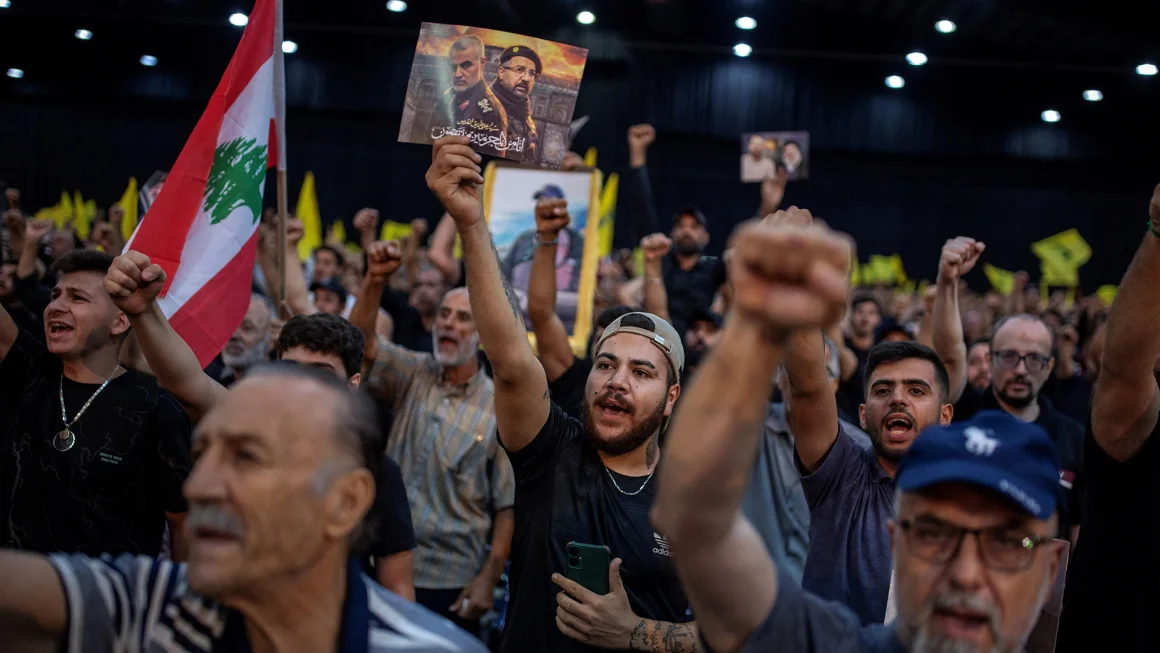The recent escalation between Israel and Iran’s allies has sparked significant uncertainty in the Middle East. The attack on Hezbollah’s top commander in Beirut and the assassination of Hamas’ Ismail Haniyeh in Tehran have left many questioning the next moves of these powerful actors.
Rising Tensions and Unclear Retaliation
In the aftermath of the July 30 attack in southern Beirut, which killed Fu’ad Shukr, a top Hezbollah commander, and four civilians, the atmosphere in Lebanon’s capital has turned grim. The next day, the assassination of Hamas’ political leader Ismail Haniyeh in Tehran only intensified the situation. “Do you think I am sitting in Hezbollah’s war room?” an exasperated political leader with ties to the group said. “I have no idea what’s going to happen next. You probably know more than I do.” The uncertainty around Iran’s response has left both Iranian and Hezbollah officials equally baffled about the future.
The Strategic Calculations
Israel’s attack was reportedly in response to a rocket strike from Hezbollah that resulted in the deaths of 12 children in Majdal Shams, an Israeli-occupied area. Hezbollah has denied the accusations, while Israeli Prime Minister Benjamin Netanyahu has cited the attack as necessary. Hezbollah’s chief, Hassan Nasrallah, has promised retaliation, calling it “inevitable.” However, his statements have been deliberately vague. “God willing, our response is coming,” Nasrallah declared. “We may act alone, or we may act with the axis,” referring to the network of Iran-backed groups across the region.
A Complex Game of Psychological Warfare
The region remains highly alert as Iran and its allies navigate a delicate balance. The alliance of groups surrounding Israel, described by some as a “ring of fire,” is causing significant anxiety. Analysts suggest that Iran and Hezbollah might be leveraging psychological warfare, keeping both Israelis and their allies guessing about the timing and nature of their response. “There’s an element of psychological warfare to this delay,” said Mohammad Ali Shabani, Iran analyst and editor of Amwaj.media. “But while you’re keeping the Israelis guessing, you’re also keeping the Lebanese and the Iranians on alert.”
Domestic and Regional Implications
The political and economic fallout is becoming increasingly apparent. In Tehran, the assassination of Haniyeh overshadowed the inauguration of Iran’s new reformist president, Masoud Pezeshkian, and dampened hopes for improved relations with the West. In Lebanon, the vibrant summer season has turned into a time of fear and uncertainty, with Israeli jets’ sonic booms replacing celebratory fireworks. “I cannot think about what happens next,” said the political leader with ties to Hezbollah. “All I can do is make the appropriate preparations to help my community in case the worst happens.”
The current geopolitical tension underscores the precarious balance in the Middle East. With both Iran and Hezbollah facing complex decisions, the outcome of their next moves remains unclear, casting a long shadow over regional stability. As the situation evolves, the international community watches closely, hoping for a resolution that avoids further escalation.







